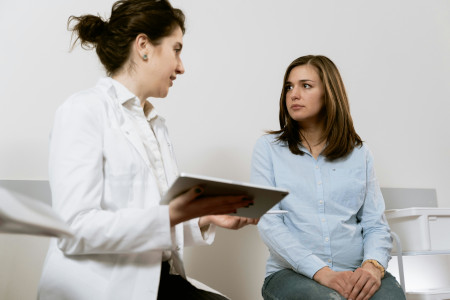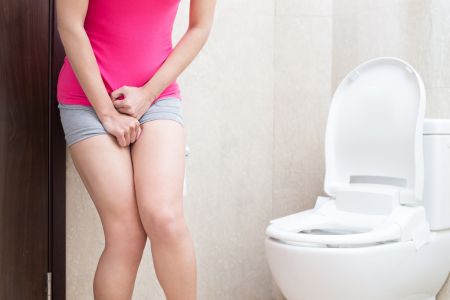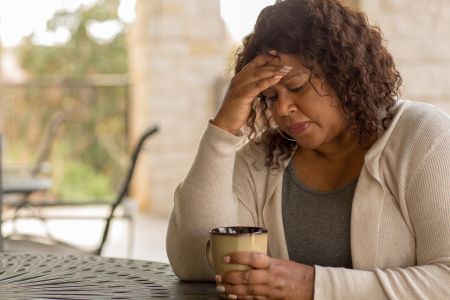How do perimenopause and menopause affect incontinence?
When a woman is heading toward menopause, her body produces fewer hormones. With declining hormone production, a woman’s overall muscle tone and elasticity decreases. This also means pelvic floor muscles weaken, and the urethra lining thins, providing less support for bladder control.
These changes often result in stress urinary incontinence, which leads to bladder leaks when a woman sneezes, coughs, or puts sudden pressure on the pelvic floor muscles. And according to the North American Menopause Society, up to 25% of women with incontinence experience leakage during sexual intercourse. With weight gain, your pelvic floor has to work harder to support your bladder, which often leads to incontinence. Obesity is a strong risk factor for incontinence.
Urge urinary incontinence comes in the form of sudden urges to urinate, resulting in leakage. This condition is related to how the nervous system signals the muscles controlling the bladder. These muscles may be overstimulated, producing stronger contractions than normal.
Nocturia refers to getting up to pee one or more times per night. This condition could be due to the production of more urine than normal. According to the Sleep Foundation, we produce less of an anti-diuretic hormone as we age, so more urine is produced resulting in more trips to the bathroom. Another potential cause is the weakening of the bladder and pelvic structures so they aren’t able to hold a normal amount of urine.
Not only are these conditions a nuisance, but they can also impact a woman’s lifestyle. Embarrassing leaks may prevent women from traveling, going out to social events, or engaging in sexual activity. There’s also a significant cost to incontinence incurred by purchasing pads and absorbent undergarments. Women affected by nocturia often report sleep deprivation, which can result in moodiness, increased risk of falls, and general fatigue.













